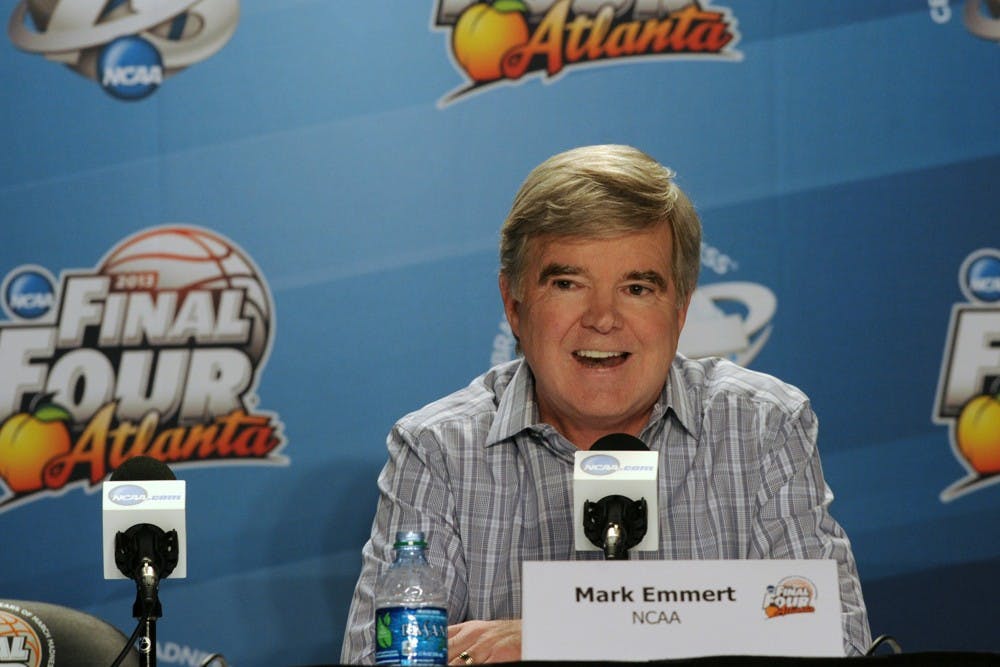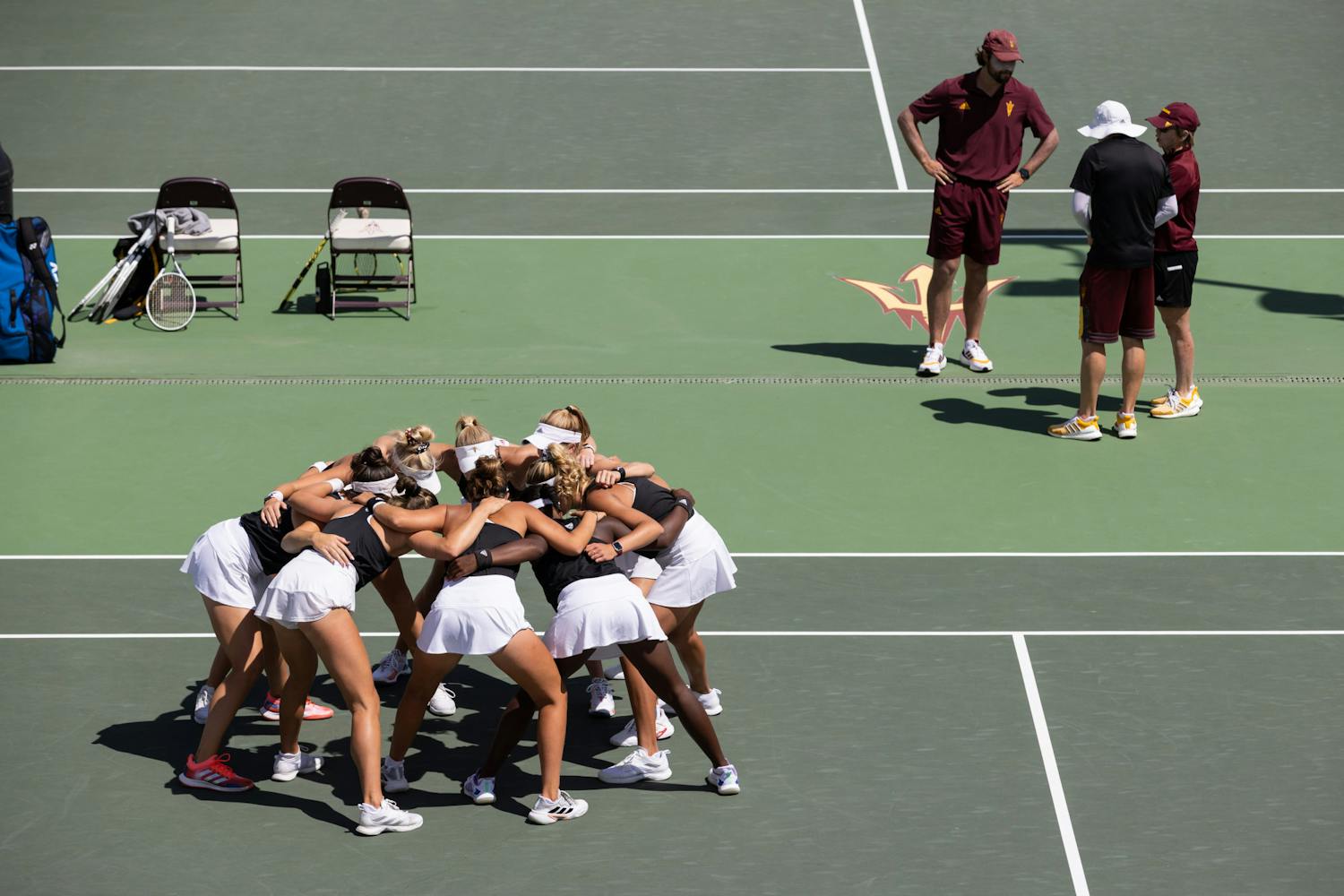Although most college campuses across the U.S. are still reeling from the results of Nov. 8, certain subsets of academe appear poised to capitalize off of the Republican Party’s success in the recent elections.
One of those groups appears to be collegiate athletic directors' trade association LEAD1, which announced on Dec. 23 it form would form a political action committee (PAC). CEO of LEAD1 Tom McMillen said the PAC “further ensures that the concerns of the LEAD1 members will be heard by members of Congress, and other key decision makers in Washington, D.C. and across the country.”
LEAD1 was formerly known as the Division 1-A Athletic Directors Association.
McMillen, a former college and professional basketball player and Rhodes Scholar who served in Congress from 1987 to 1993, appeared on the Capital Games podcast on Jan. 12 to discuss the formation of the PAC with hosts Andy Katz and Rick Klein.
Capital Games: A new PAC is lobbying congress. CEO Tom McMillen joins us as well as @JayBilas @DanWetzel @finebaum https://t.co/L6PdEOECoy
— Andy Katz (@ESPNAndyKatz) January 12, 2017
“We don’t have any specific agenda at this time,” McMillen said, adding that the organization hopes to build relationships politicians who are fans of college sports.
“Sun Devil Athletics hopes the PAC can drive awareness for expansion of educational and scholarship opportunities for student-athletes,” an SDA spokesperson said in an emailed statement. “With some athletics departments downsizing the number of sports the school fields to increase the bottom line, opportunities for athletes to compete and receive an education also decrease.
“Aside from the GI Bill, the NCAA system is the largest benefactor of educational opportunities in the country. We want to preserve current scholarship opportunities and encourage other institutions to expand the number of opportunities offered.”
The spokesperson added: “The PAC is a proactive measure to help represent issues and concerns pertaining to NCAA institutions and their constituents. There are many issues that are important to athletics directors, including gender equity, Title IX and sexual violence, and distribution of federal funding. The creation of the PAC gives athletics directors a mechanism to communicate and advocate on behalf of the student-athletes and universities.”
If history is any guide, however, the LEAD1 PAC will have an item of singular importance on its lobbying agenda: An antitrust exemption for the NCAA. McMillen first introduced a bill that included one as a representative from Maryland nearly 25 years ago, and there are strong indications that a similar measure is one of LEAD1’s top priorities.
A majority of the (costly) legal challenges currently facing the NCAA, its
Current and future college athletes and their advocates should be extremely concerned by these developments. An antitrust exemption for the NCAA would have disastrous consequences: It could certainly hamper, if not completely enjoin, legal efforts seeking the protection and advancement of athletes’ rights, health and economic freedoms. Since the only real recourse athletes have found against the NCAA’s cartel-like behavior is through the courts, an antitrust exemption could mean that the association and its members could truly act with impunity.
“Our student-athletes should see the formation of the LEAD1 PAC as an action to advocate
It is difficult to square this claim with the historic actions of collegiate athletics administrators, most of whom have worked to serve the well-being of athletes to a point — so long as doing so does not significantly increase their department’s costs. Some athletic directors, including Northwestern’s Jim Phillips and Stanford’s Bernard Muir, have frustrated efforts by athletes to gain additional labor protections and economic benefits.
Although SDA, McMillen, and other athletic administrators may give lip-service to serving players’ interests, it is clear enough from their previous behavior and the current climate of college athletics that the LEAD1 PAC’s primary objective will be the entrenchment of the NCAA’s collegiate model (one that legally and economically disenfranchises the athletes it purports to serve). An antitrust exemption is likely to be the centerpiece of such efforts.
Later on in the podcast, McMillen essentially previewed LEAD1’s arguments in favor of an exemption, opining that “the predominant value of college sports is the nexus between education and sports. And if you move towards a compensatory system with lawyers and everything, you’re going to cut that nexus.”
Although that tired, age-old argument against paying college athletes has been repeated (and refuted) ad nauseam by amateurism apologists, the rebuttal is worth repeating: Education and pay are not mutually exclusive.
That is, one’s receipt of compensation for the value of their skills and talents does not necessarily hinder them from taking full advantage of the educational opportunities provided by our colleges and universities. Think of the art students, the theater majors, the computer
Nonetheless, McMillen pushed the academics argument forward, declaring “The most important thing we need to do is make sure these student-athletes get an education” (an outcome everyone can agree
NCAA athletic directors now have their own PAC. Are they angling for a federal amateurism bailout? Me @VICESports - https://t.co/OW1tJ10D39
— Patrick Hruby (@patrick_hruby) January 19, 2017
That’s a disquieting thought: President Donald Trump convening a committee to further the interests of college athletes. Trump, who had accusations of racial discrimination levied at him throughout his career as a housing developer, who has appointed a Secretary of Labor completely inimical to workers’ rights, and whose Presidential transition team counted among its advisers a former FTC official who seems to be soft on antitrust, Color me skeptical, and deeply, deeply concerned about the future of players’ rights.
McMillen, though not specifically pressed on this during the podcast, not only seemed unperturbed by the potential impact of President Trump on collegiate
“The most important thing we do is making sure that these young kids are going through this system and getting a real, bona fide degree,” McMillen said. “That’s the essence of college sports. And if you lose that, you’ve lost the soul. And so I think moving toward a compensatory system could very well cost you your soul.”
McMillan and the LEAD1 members have already lost theirs by attempting to safeguard their collusive, exploitative business practices from legal liability.
Reach the columnist at cameron.miller.1@asu.edu or follow @C_C_Miller on Twitter.
Like State Press Sports on Facebook and follow @statepresssport on Twitter.




